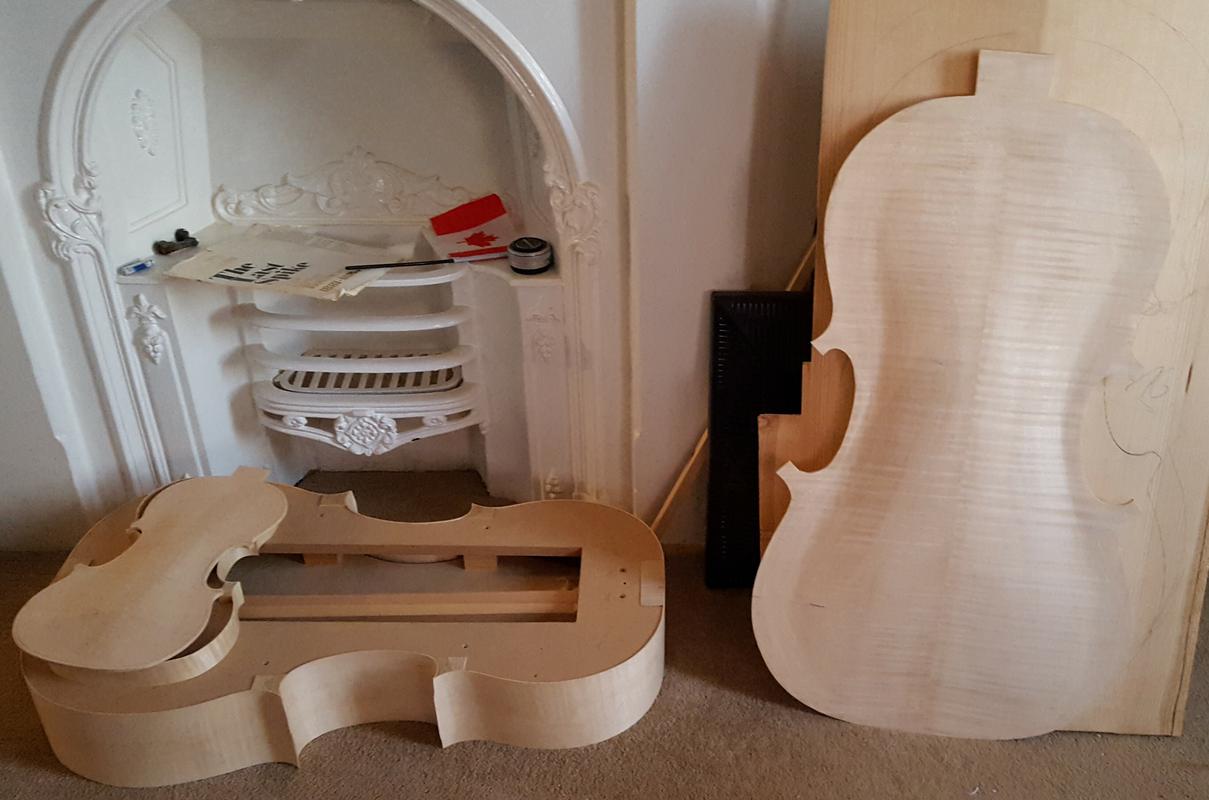Jacob
What goes around comes around.
I made a lute but it was from a kit, before I was really into woodworking. It still involved a lot of bending, shaping and jointing but the bits were planed to size and the tuning pegs were turned. Much like building a Kielcraft model aeroplane.
The main thing is not to be intimidated by the top end instruments - just see it as another careful craft exercise - it's all in the planning and layout stage, and start with something simple.
I collected a number of wrecked instruments at one stage, with the intention of mending them and learning about it in the process, but they were kicking around for years and ended up in the fire
PS I used white PVA on the lute. I thought it might creep or something but it's still stuck together perfectly after 40 years. Oddly enough it crossed my mind I ought to start learning to play it, and being in Saltaire last Wednesday (Salts Mill) I spotted the Early Music Shop and popped in for a new set of strings (expensive!). They do luthier supplies and kits too - but much more finished than the one I did, and more expensive
http://www.earlymusicshop.com/
The main thing is not to be intimidated by the top end instruments - just see it as another careful craft exercise - it's all in the planning and layout stage, and start with something simple.
I collected a number of wrecked instruments at one stage, with the intention of mending them and learning about it in the process, but they were kicking around for years and ended up in the fire
PS I used white PVA on the lute. I thought it might creep or something but it's still stuck together perfectly after 40 years. Oddly enough it crossed my mind I ought to start learning to play it, and being in Saltaire last Wednesday (Salts Mill) I spotted the Early Music Shop and popped in for a new set of strings (expensive!). They do luthier supplies and kits too - but much more finished than the one I did, and more expensive
http://www.earlymusicshop.com/

































